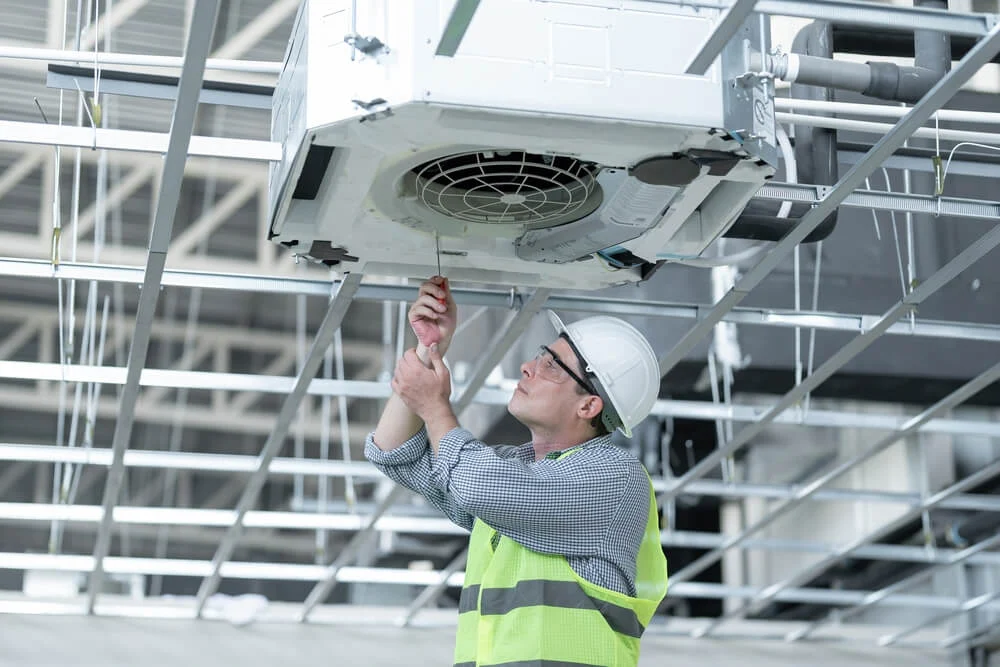How to Maximize the Lifespan of a Commercial HVAC Unit
A commercial HVAC system is a significant investment, and its longevity directly impacts operational costs. Proper maintenance and proactive measures can extend its lifespan, ensuring reliable performance and energy efficiency. This guide explores the typical lifespan of a commercial HVAC unit and provides practical strategies to maximize it.
What Is the Average Lifespan of a Commercial HVAC Unit?
The lifespan of a commercial HVAC unit depends on system type, usage, and maintenance. Here are common examples:
These estimates assume regular HVAC maintenance. Without it, systems can fail years earlier, leading to costly replacements.
Factors That Affect the Lifespan of a Commercial HVAC Unit
Several elements influence how long an HVAC system will last.
Maintenance Practices
Routine maintenance plays the most significant role in extending a system’s life. Regular inspections, cleaning, and servicing help identify minor issues before they become costly repairs or system failures.
System Usage and Load
The more frequently an HVAC unit runs, the faster its components wear out. Businesses that operate 24/7 or have high-occupancy buildings put more strain on their systems, requiring additional maintenance to prevent premature failure.
Installation Quality
Even the best HVAC unit can fail prematurely if not installed correctly. Poor installation can lead to inefficient airflow, incorrect refrigerant levels, and excessive wear on system components.
Environmental Conditions
California’s diverse climate affects HVAC performance. Coastal areas with high humidity can cause corrosion, while inland regions with extreme heat increase cooling demands. Proper maintenance should account for these environmental factors.
Best Practices to Extend the Lifespan of Your Commercial HVAC System
Implementing proactive maintenance and efficiency strategies can significantly increase the longevity of your HVAC system.
Schedule Regular Preventive Maintenance
Consistent maintenance is essential for keeping an HVAC system in top condition. Not to mention, happy tenants. A professional technician should inspect key components, clean coils, check refrigerant levels, and ensure electrical connections are secure. Clogged filters, dirty coils, and worn-out belts can cause a system to work harder than necessary, reducing efficiency and lifespan.
Since every commercial system has unique demands, it’s best to consult with a qualified HVAC professional to determine the right maintenance schedule for your business. Contact Aquinas HVAC to discuss a customized maintenance plan that suits your system’s specific needs.
Optimize System Efficiency
An overworked system experiences more wear and tear. To keep your HVAC unit running efficiently:
- Upgrade to smart thermostats that optimize energy use.
- Improve insulation to reduce heating and cooling loads.
- Ensure ductwork is properly sealed to prevent air leaks.
Reducing unnecessary strain on the system helps extend its lifespan and lowers energy costs.
Ensure Proper Airflow
Restricted airflow forces the HVAC system to work harder, which shortens its lifespan. Businesses should regularly check that vents are unobstructed and that air filters are clean. Inspecting ductwork for leaks and blockages can also prevent system inefficiencies.
Monitor System Performance
A well-maintained system operates consistently. Warning signs of potential issues include uneven temperatures, rising energy costs, and unusual noises. Addressing these concerns early can prevent major breakdowns and costly repairs.
Upgrade Components When Needed
Instead of replacing an entire HVAC unit, upgrading specific components can extend its usability. Variable-speed motors, high-efficiency compressors, and advanced filtration systems improve performance while reducing stress on aging systems.
Work With Experienced Commercial HVAC Technicians
Partnering with experienced commercial HVAC professionals ensures proper system care. Certified technicians can detect hidden problems, optimize performance, and recommend energy-efficient solutions tailored to your business needs.
When to Replace a Commercial HVAC Unit
Despite best efforts, no system lasts forever. Signs that it may be time for a replacement include frequent breakdowns, rising energy costs, and uneven heating or cooling. If an HVAC unit struggles to maintain efficiency or lacks modern energy-saving features, upgrading to a newer model may be the most cost-effective solution. Here at Aquinas we can provide an estimate for a full commercial HVAC installation for your commercial property.
Conclusion
A well-maintained commercial HVAC system can provide decades of reliable service. By scheduling routine maintenance, optimizing efficiency, and addressing issues early, businesses can maximize their investment. To ensure your system operates at peak performance, contact Aquinas HVAC for a professional maintenance plan tailored to your business.

